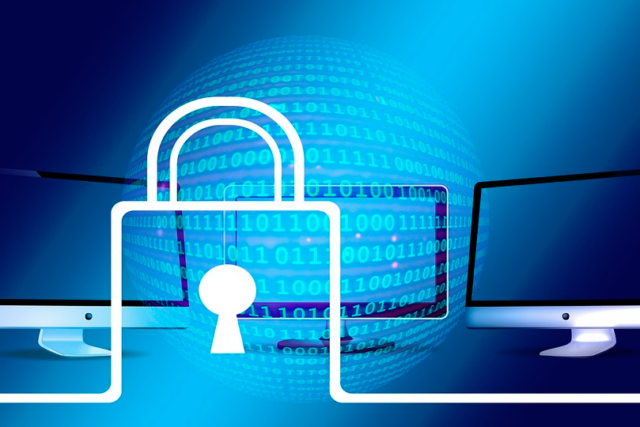Programming is an exciting field that has transformed the world in countless ways. As the demand for skilled programmers rises, more and more people enter this challenging and rewarding profession. But what happens when the world of coding impacts the lives of programmers’ families? In this blog post, we will explore the dynamics between programmers and their loved ones. We will also offer practical advice on how to bridge the digital divide for harmonious family life.
Table of contents
- Understanding the Programmer’s Mindset
- Communication is Important
- Sharing the Passion for Programming
- Striking a Work-Life Balance
- Tech-Free Family Time
Understanding the Programmer’s Mindset
Before delving into practical tips, it’s crucial to understand the programmer’s mindset. Programmers are often seen as highly focused, analytical individuals who thrive on problem-solving and logic. However, this does not mean they are emotionally detached or incapable of forming deep connections with their family members. In fact, their passion for coding can actually bring families closer together if channeled correctly.
Common traits in programmers:
- Problem-solving mentality: Programmers love solving complex problems and apply this approach to family life;
- Detail-oriented: They pay close attention to details, which can be both an asset and a challenge in personal relationships;
- Continuous learning: Programmers always seek to learn and improve, an attitude that inspires family members.
By understanding the programmer’s mindset, families can better appreciate their loved one’s passion for coding. They can also work together to foster a healthy balance between work and personal life.
Communication is Important
Open communication is vital in any relationship, and this is especially true for families with programmers. Programmers often work long hours and become absorbed in their projects, making it essential to maintain open lines of communication with their loved ones.
Tips for Effective Communication:
- Establish a routine: Set aside time for regular conversations and updates about each other’s lives;
- Listen actively: Give your full attention to your family members when they speak, and ask follow-up questions to show your interest;
- Express your feelings: Don’t hesitate to share your thoughts and emotions with your loved ones. This builds trust and understanding;
- Be patient: Remember that communication is a two-way street, and sometimes it may take time for your programmer or family member to open up about their work or feelings.
Sharing the Passion for Programming
For many programmers, coding is more than just a job – it’s a passion. Sharing this enthusiasm with family members can strengthen bonds and create a shared interest that transcends the digital divide.
Ways to Share Programming Love:
- Teach coding skills: Introduce your loved ones to programming by teaching them basic coding skills or enrolling them in coding courses;
- Work on projects together: Collaborate on fun coding projects, such as building a family website or creating a custom video game;
- Attend tech events: Participate in local coding events, hackathons, or meetups as a family to learn more about the programming community.
Striking a Work-Life Balance
Programmers often face the challenge of striking a healthy work-life balance. Long hours, tight deadlines, and a constant drive for improvement can make it difficult for programmers to separate their professional and personal lives. To maintain strong relationships with their loved ones, programmers must establish boundaries and prioritize family time.
Tips for a Healthy Work-Life Balance:
- Set clear boundaries: Establish specific work hours and stick to them. Avoid working during designated family time, and communicate these boundaries with your loved ones;
- Prioritize self-care: Make time for exercise, sleep, and relaxation to ensure you are mentally and physically present for your family;
- Be flexible: Understand that life is unpredictable, and sometimes you may need to adjust your work schedule to accommodate family events or emergency;
- Delegate tasks: Learn to delegate tasks at work and at home to avoid burnout and ensure you have enough time for your family.
Tech-Free Family Time
While technology has revolutionized our lives, it’s essential to disconnect from screens and enjoy quality, tech-free time with our loved ones. This can help programmers maintain a healthy balance between their passion for coding and family life.
Ideas for tech-free family activities:
- Enjoy the great outdoors: Make time for a hike, walk, or bike ride as a family. Spending time in nature can reduce stress and promote bonding;
- Play board games: Choose from an array of board games suitable for all ages and interests. This is a great way to engage in friendly competition and foster communication;
- Cook together: Experiment with creative recipes or create a family cookbook. Cooking together encourages teamwork and offers an opportunity to bond over a shared meal;
- Volunteer: Find a local organization where you can volunteer as a family. This not only benefits the community but also allows you to spend meaningful time together while making a difference.
In conclusion, navigating the digital divide between programmers and their families is not impossible. By understanding the programmer’s mindset, fostering open communication, sharing programming passion, striking a healthy work-life balance, and enjoying tech-free family time, both programmers and their loved ones can build strong, lasting relationships. With a bit of effort and understanding, programming can become a unifying force that brings families closer together.
Encouraging a supportive family environment
Creating a supportive family environment is crucial for programmers to thrive professionally and personally. By encouraging open dialogue, mutual respect, and understanding, families can create a nurturing atmosphere that helps their programmer loved ones succeed.
Tips for Fostering a Supportive Family Environment:
- Celebrate achievements: Acknowledge and celebrate your programmer family member’s accomplishments, whether it’s completing a challenging project, learning another programming language, or receiving a job promotion;
- Offer encouragement: Be there to offer support and encouragement when your loved one is facing challenges or feeling overwhelmed. Let them know that you believe in their abilities and root for their success;
- Respect their passion: Understand that programming is an essential part of your loved one’s life, and support their dedication to their craft. Encourage their pursuits and show interest in their work;
- Encourage hobbies outside of programming: While it’s important to support their passion for coding, also encourage your programmer family member to explore interests and hobbies outside of their work. This can help promote a well-rounded life and prevent burnout.
Understanding the Impact of Programming on Mental Health
The world of programming can be demanding and, at times, stressful. Families must recognize the potential impact of programming on their loved one’s mental health and offer support when needed.
Ways to Support Mental Health:
- Recognize stress signs: Keep an eye out for stress signs, such as irritability, sleep problems, or appetite changes. If you notice these signs, offer your support and encourage your loved one to take a break or seek help if necessary;
- Promote self-care: Encourage your programmer family member to prioritize self-care activities, such as exercise, meditation, or spending time with friends. These activities can boost mental health and overall well-being;
- Offer a listening ear: Be there to listen and empathize when your loved one experiences challenges or stress at work. Sometimes, just having someone to talk to can make all the difference;
- Suggest professional help if needed: If your loved one is struggling with their mental health, encourage them to seek professional help, such as therapy or counseling. Mental health is just as critical as physical health, and seeking help is a sign of strength, not weakness.
Ultimately, bridging the digital divide between programmers and their families is an ongoing process that requires patience, understanding, and open communication. By working together to create a supportive, nurturing environment, families can ensure that their programmer loved one thrives both in their career and personal life. Embracing programming as a shared interest can bring families closer together and foster deeper connections that span the digital divide.




MOST COMMENTED
Interesting
Game-Based Platforms for Learning Programming: Coding Through Entertainment
Interesting
Compatibility Issues: Why Do Excel and CSV Break Data?
Interesting
The Impact of Algorithmic Systems on News Narratives and Public Opinion
Programming
Understanding 11Croco Platform Advantages: A Programming Perspective
Interesting
The Enduring Programming Languages Behind Your Favorite Online Games
Programming
Platform Development: Key trends shaping the industry
Programming
Coding Challenges and Competitions: Testing Your Skills on the Global Stage